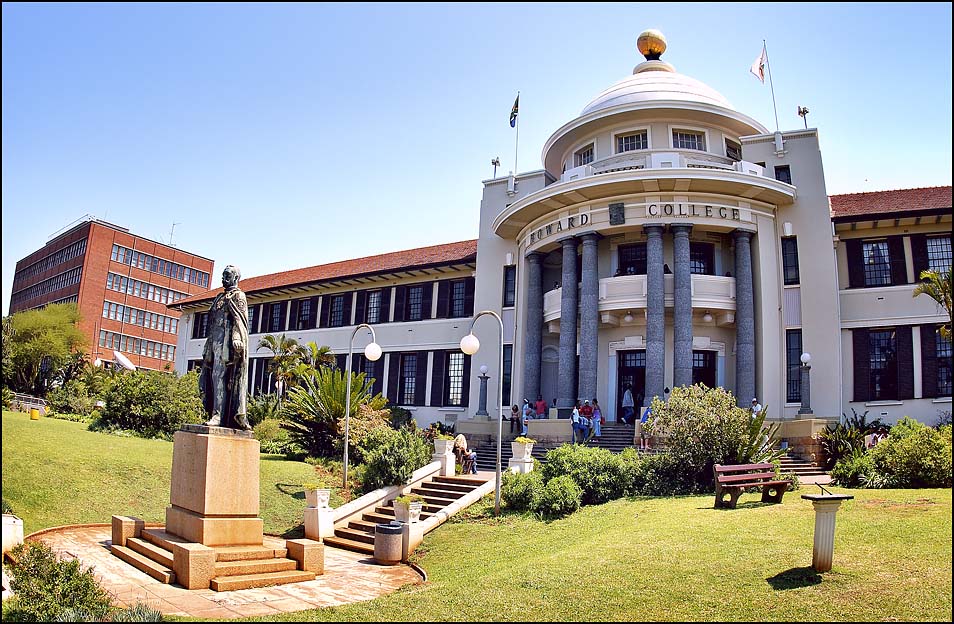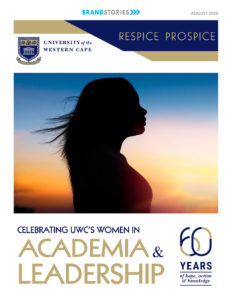Newsletter from UKZN to parents – what it says

Howard College Campus
Dear Parents and Guardians, I am writing to give you a brief update on a number of key issues that have disrupted the start of the 2020 academic year and the continuation of the academic programme.
As you will no doubt be aware, the start of the 2020 academic year was plagued by violence and damage to property which resulted in disruptions to our registration processes and the start of the academic programme. Just as the University was settling to normality, we were forced to implement very swift and drastic measures in response to the current coronavirus (Covid-19) pandemic.
DISRUPTIONS AND VIOLENCE – DEMANDS FOR FREE REGISTRATION
At the start of the 2020 registration period, UKZN was confronted with student demands for the University to write off student debt and provide free education to approximately 78% of the University’s student population. This was a demand that the institution y could not accede to for a number of factors such as:
- The fact that even government policy of fully subsidised higher education does not fund all students whose annual family income is above R350 000;
- The fact that current and former students owed the University R1,7 billion as at the end of 2019;
- The University was not requiring a single student of the University to pay their student debt in full prior to registration;
- The payments required from students towards their debt were amongst the lowest of all public universities – ranging from R10,000 to R45,000 per student with more than 60% of all our students paying less than R10,000 towards their debt and 67% making no payments at all for registration fees because they are funded by NSFAS and other sponsors.

Vice-Chancellor and Principal
Despite this demand, the claim that students could not afford the required payments and the continuous disruptions to our registration processes, the University still recorded registrations similar to those of the previous years.
As I write to you, the University has already exceeded its enrolment targets for undergraduate students for the 2020 academic year by 1%. Students with fee clearance and no academic holds were able to register online as from 7 January 2020 up until 6 March 2020. Approximately 84% of our current student enrolment registered online – a figure in keeping with previous years. As at close of business on the 19 March 2020, the University’s enrolment statistics were as follows:
LEVEL OF STUDY: Undergraduates
ACTUAL ENROLMENTS: 35 179
TARGETED ENROLMENTS:34 914
%: 101%
LEVEL OF STUDY: Postgraduates
ACTUAL ENROLMENTS: 11 113
TARGETED ENROLMENTS:12 812
%: 87%
TOTAL ACTUAL ENROLMENTS: 46 292
TOTAL TARGETED ENROLMENTS: 4 7 726
TOTAL %: 97%
This is a clear indication that the overwhelming majority of our students did not at any point in the registration process support the disruption and indeed were not part of it as they continued to register in spite of the hostility, intimidation and violence directed at them and the University management.
It also raises significant questions about why UKZN was subjected to such intense violence when legitimate students had acquiesced to the University’s concessions and endeavoured to secure funds to continue their education. It is now clear that the disruptions and violence were neither random nor pointless.
There are two types of groups whose operations are being challenged by the sweeping reforms ongoing at the University:
(i) stakeholders who have developed lucrative income pipelines from encouraging instability at the University through instigating protests and unrest; and
(ii) a group of students who have simply taken too long to complete their qualifications and have become “institutionalised” in the University.
For both these groups, instability has for many years forced the University into conceding financial concessions and procurements which enables their lifestyles to be maintained whilst rendering the future of the University unsustainable. The outcome is that the University’s investment in frontline teaching and learning has declined by more than 99% over the past 10 years whilst student numbers have increased by 90% over the same period.
There remain factions within the University determined to turn the clock back – to make corrupt practices, parasitic behaviour and mired systems work for individuals and groups at the expense of UKZN’s mission. We have recognised this and the management of this University is committed to continuing with the sweeping reforms that will ensure the institution’s sustainability and heighten its national and international standing.
We cannot stand still while institutions of higher education throughout the world are adapting to the rapidly changing conditions and expectations shaping the future of public universities; we cannot succeed in this without the financial sustainability that enables investment; we cannot “buy-off” the instrumental use of violence and intimidation – both as a matter of principle and because it would make UKZN unviable – and we will continue to root out the self-seeking and harmful actions of individuals and groups, from “professional students” to predatory networks who thrive on inciting disruption.
For these reforms to succeed, we also need your support as parents and guardians – to refute inflammatory rhetoric, to recognise that the management of UKZN has acted openly and in good faith to ensure the well-being and education of your children; and to continue to support them and us in securing a brighter future for them.
OUR RESPONSE TO THE CORONAVIRUS DISEASE (Covid-19)
Covid-19 has been declared a global pandemic by the World Health Organization and a national disaster by President Cyril Ramaphosa. UKZN welcomes President Cyril Ramaphosa’s decisive and swift action in implementing a national lockdown to beat the highly contagious Covid -19 and “flatten the curve”. These are challenging and difficult times for the world, and as a University, we were quite proactive in this regard and implemented an early mid-term break starting on 17 March 2020, to allow all our students to vacate University residences and get home in a bid to safeguard their health and safety.
We are not alone in this: our sister institutions throughout Southern Africa, Europe and North America have been obliged to take the same action. Our duty of care for the health and wellbeing for our students, staff and members of the local community is at one with our citizen responsibilities, since we must work together to stop the progress of this virus and flatten the curve if we are to successfully defeat this scourge. The most important public health principle is containment of the disease, including avoiding social gatherings and minimising groups of people gathering in one space.
The University provided transport for those students who were financially constrained and provided storage space for students who were unable to take all their belongings home. Approximately 300 buses were provided to take students to specific central hubs within the province of KwaZulu-Natal. The buses were sanitised and students were provided with hand sanitisers, gloves and masks prior to boarding the buses as a precautionary measure.
At this stage, it is not clear when lectures will resume. We will be guided by national pronouncements in this regard. All students are urged to maintain discipline and work through their study material during this period. Every effort is being made to finalise the provision of online teaching and learning strategy.
However, we are very aware of the issues:
(1) a number of our first entry NSFAS funded students not having their laptops yet and
(2) the issue of requiring access to Wi-Fi.
For these reasons, there is no expectation that students be required to submit assignments and/or access online material at this stage as there would be many who would not be in a position to participate.
The University Management is looking at three possible scenarios, namely:
(i) that we will be able to return to normality (contact on campus) after the lockdown period of 21 days (that is +- 20 April 2020);
(ii) that we are not able to return in 21 days’ time, and that we may be looking at August to resume contact lectures; and
(iii) what will happen if we have to lose the semester and/ or academic year because of COVID-19.
The University Teaching and Learning Office, ICS, College DVCs and College Deans of Teaching and Learning have been hard at work defining what needs to be done, when and by whom, to ensure that this year’s academic programme can continue with minimum disruption. This includes both what staff need to be doing now, for example uploading their course content on MOODLE, but more importantly: what steps/measures we as a University need to develop and set in place so that all our students are ready for any potential roll-out of remote teaching including laptops, a means to connect, etc.
Exploring and preparing for different (online) ways of getting learning material out there should not be seen as just something to assist us now, but also as a way of future-proofing UKZN for students (and staff) to come. This strategy will be communicated to students in due course and the University will take all the necessary steps to ensure that all students are properly informed and orientated prior to any consideration towards implementation of our online learning Strategy.
Each year, the University hosts approximately 30 000 students and their families at the annual Graduation Ceremonies. Sadly, we have had to cancel the April 2020 Graduation Ceremonies. The Registrar’s Office will send details to graduates about how they can receive their graduation certificates. Upon further engagement with the student leadership, Management has acknowledged that the Graduation Ceremonies are very significant and important celebrations for our students and more importantly, their families. Therefore, the decision to cancel graduation will be reviewed at a later stage, taking into account developments around the Covid -19 pandemic.
In order to limit staff exposure to potential infection and to comply with the national lockdown, only essential services will continue working on campus. All other staff are required to work remotely where possible and as required by their line managers. We are striving to ensure that there is continuity of operations as far as practically possible for our institution under these extraordinary circumstances. All non-essential gatherings and travel have been cancelled or postponed.
UKZN SUCCESSES
Despite the challenges we currently face as UKZN and the world over, we are nonetheless pleased to highlight some of our many successes that speak to our prowess as a Premier University of African Scholarship.
UKZN’S RESEARCH TRAJECTORY PROPELS IT TO THE TOP
The University of KwaZulu-Natal has secured the top spot in South Africa for total published research outputs and total weighted actual research outputs for the year 2018. This was for the latest audited assessment period by the Department of Higher Education and Training (DHET). UKZN had previously been placed second nationally with regard total published research outputs. Read more
UKZN LAUNCHES FIRST Covid-19 UNIVERSITY INTERVENTION IN AFRICA
UKZN launched a ground-breaking Campus Health “War Room” to support international efforts to fight the deadly Coronavirus (Covid -19) outbreak. To bolster these efforts, the University has created an email address: [email protected] and the hashtag: #ukzncovid19 for staff and student queries. A hotline will also be established to communicate with its stakeholders about the virus. Read more
MEET SA MATHEMATICAL SOCIETY PRESIDENT
Academic Leader of Mathematics on the UKZN Pietermaritzburg campus, Professor Precious Sibanda, was recently appointed President of the South African Mathematical Society (SAMS) for a two-year term. Known for his research in the field of applied mathematics and mathematical modelling of fluids, Sibanda has been an academic at UKZN for 17 years. Read more
HUMANITIES ACADEMIC ELECTED ENGLISH ACADEMY OF SOUTHERN AFRICA PRESIDENT
Academic in the College of Humanities, Professor Mbongeni Malaba has been elected President of the English Academy of Southern Africa (EASA). EASA is a non-profit organisation that was founded in 1961 to promote effective use of English as a national resource in the region. During his tenure as President, Malaba will work towards promoting greater co-operation between English departments in universities within the SADC region and to continue encouraging closer co-operation with schools. Read More
CONCLUSION
Despite the unprecedented challenges now facing us, there is no justification for despondency: staff throughout the University have responded with the calm professionalism which is the hallmark of our institution. Conditions have altered, but our shared purposes remain, and our underlying strengths will see us through this difficult period.
Indeed, even as we have grappled with these difficulties, it was announced that UKZN was placed as the top University nationally for total published research outputs and total weighted actual research outputs. This was for the latest audited assessment period by the Department of Higher Education and Training (DHET). UKZN had previously been placed second nationally with regard total published research outputs.
In this time of great uncertainty, decisions will be communicated via the UKZN website, University Notice System and email. In the meantime, please actively work towards maintaining good health and flattening the curve.
Sincerely,
Professor Nana Poku
Vice-Chancellor and Principal



